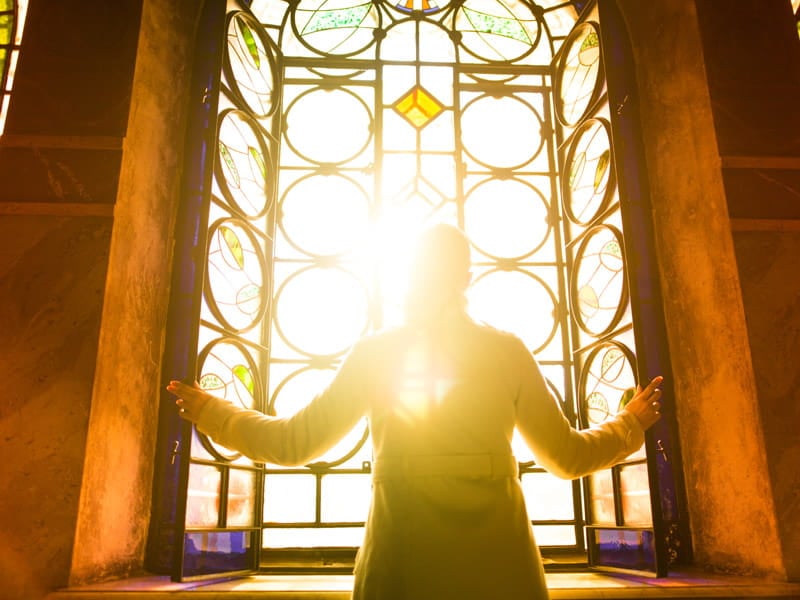
Pick whatever term you need to describe a heartbreak. It's crushing, painful, distressful and makes you come unglued. A broken heart can be the ending of a relationship, a death, the end of a dream or from disloyalty. The experience of heartbreak can be so powerful it can lead to physical pain that is substantial. A study of people who recently lost their spouse found the stress involved with mourning upped the risk of dying from a heart attack by 20 to 35 percent. "Several studies indicate that various measures of stress such as poor marital quality, loneliness, depressed mood, dissatisfaction with social support, unemployment and bereavement are related to immune suppression or to the functioning of the immune system in general," Pekka Martikainen, Ph.D., and Tapani Valkonen, Ph.D. found. The impact of emotional stress should not be taken lightly as stress hormones flood the body where there is a shock from a divorce, death or any tragic event. When it comes to mending a broken heart, there's not a fast solution. However, examine the following concepts to begin the restorative process.
Stop hiding.
This is not to belittle the strength of your feelings but you need to face this pain head-on. By faking the smile all the time, you are doing a disservice to yourself. Overcoming pain is not easy, but allowing it to be buried will not benefit you either. There are days when you don’t want to wake up and deal with people or the world. Eventually, you can either spend your life hiding or be real that you're struggling. Instead of running to addictive behaviors for quick relief, go to God and have it out with Him on how you're broken and hurting. Start pushing yourself through the agony as you can't heal what you don't acknowledge.Know the enemy.
God heals and brings hope to the hopeless. The devil, on the other hand, aims to kill, rob and to plunder a person. In every decision you make, you are either submitting to God or to the devil. James 4:7 said to “Submit yourselves, then, to God. Resist the devil and he will flee from you.” When we are in a weakened state, the devil and your own mind will blindside you. Even though you're walking through the darkest valley, God will prepare a table before you in front of your enemies. The enemy here is the devil and he whispers fear and hopelessness into your life. The Bible reminds us the battle is not people based, it’s spiritual. Identify your opponent and know he's using this time as a tool to keep you from moving onward.Pray.
Jesus got up, left and went off to a solitary place where He prayed. He moved away from people to spend time in prayer so He could refuel and to seek solutions. Prayer is mentioned a lot in the Bible and there is a reason as the soul needs to commune with God regardless of pain. You may not want to eat, let alone pray because you feel rejected by God for not responding to previous petitions. A natural response is to withdraw and tell God to "Go His way." This will feel good in the beginning, but it just adds to the bitterness. He knows your heart and thoughts before you even open your mouth, so don't cut off the communication.Live in the moment.
Author Leo Tolstoy recognized the delicacy of the human heart when he wrote in Anna Karenina, "Doctoring her seemed to her as absurd as putting together the pieces of a broken vase. Her heart was broken." How can you pick up these pieces to get a sense of relief? Stay in the present moment, don't linger in the past or go too far into the future. Pay attention to destructive thoughts and find gladness in the simple things in life. Try welcoming the blessings of the day as it unfolds like the beauty of the sunset or being alive. There will be painful moments, but just benevolently ease into it and let it go. People report by being more mindful they experienced less emotional pain on a lower level. "They may not get so caught up in the negative stories and evasive reactions that tend to accompany pain but do nothing to stop it and, indeed, may increase the mind’s perception of it," mindful.org reported.Be ready for the unexpected.
People who are hurt will experience a rollercoaster of emotions. You may be fine one day and the next you feel like hiding in a dark corner. Your thoughts will be disorganized, you will forget things and will feel scattered. You may experience bursts of grief and then be fine moments later. In 1969, psychiatrist Elisabeth Kübler-Ross introduced what became known as the “5 stages of grief.” These stages of grief were based on her studies of the feelings of patients facing terminal illness and other negative life changes like breakups and other disappointments. The 5 stages of grief are denial, anger, bargaining, depression and acceptance. The periods of sadness should become less intense as you move through the stages, and everyone goes through them in a unique fashion.Change your environment.
Change the look of your home or in other areas where you're reminded of the sadness. Move furniture, change the drapes, paint or just redecorate. It's important to work on our spirit, but improving the environment also plays a part. By making changes to brighten your mood, you're helping yourself move forward.The Japanese do something interesting when pottery breaks. They fill the cracks using lacquer resin laced with gold or silver and the art form is called kintsukuroi. The pottery may be damaged, but it's still beautifully broken. How this is true with our hearts. When we deal with heartbreak on any level, we remain beautiful despite the emotional wounds. In every circumstance see it from God's way instead of from your view. There is always a bigger picture in the middle of pain and God will extricate beauty from it.

